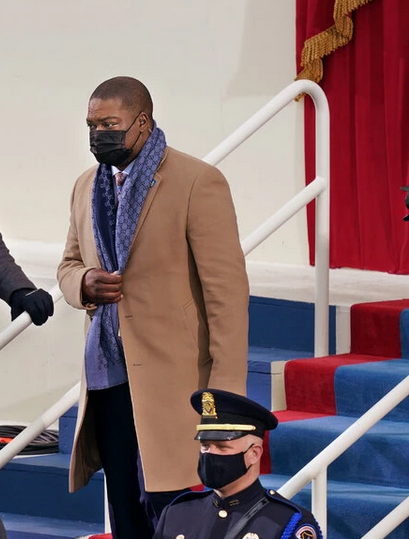Joseph Robinette Biden Jr. was sworn in as the 46th president of the United States on Wednesday, taking office at a moment of profound economic, health and political crises with a promise to seek unity after a tumultuous four years that tore at the fabric of American society.
With his hand on a five-inch-thick Bible that has been in his family for 128 years, Mr. Biden recited the 35-word oath of office swearing to “preserve, protect and defend the Constitution” in a ceremony administered by Chief Justice John G. Roberts Jr., completing the process at 11:49 a.m., 11 minutes before the authority of the presidency formally changes hands.
The ritual transfer of power came shortly after Kamala Devi Harris was sworn in as vice president by Justice Sonia Sotomayor, her hand on a Bible that once belonged to Thurgood Marshall, the civil rights icon and Supreme Court justice. Ms. Harris’s ascension made her the highest-ranking woman in the history of the United States and the first Black American and first person of South Asian descent to hold the nation’s second highest office.
“This is America’s day,” Mr. Biden said as he began his Inaugural Address. “This is democracy’s day.”
After a deeply tumultuous transition, including the storming of the Capitol by supporters of now-former President Donald J. Trump, “democracy has prevailed,” Mr. Biden said, in a speech that immediately laid out the contrast between himself and his predecessor.
“Few people in our nation’s history have been more challenged or found a time more challenging or difficult than the time we’re in now,” Mr. Biden said, before explicitly acknowledging the devastating toll of the coronavirus in a way Mr. Trump never did.
He went on, “To overcome these challenges, to restore the soul and secure the future of America, requires so much more than words and requires the most elusive of all things in a democracy: unity.”
Mr. Biden’s plea for the country to come together echoed a defining theme of his presidential campaign, a message that has only taken on greater urgency in recent weeks.
“We must end this uncivil war that pits red against blue, rural versus urban, conservative versus liberal,” he said. “We can do this if we open our souls instead of hardening our hearts.”
And four years after Mr. Trump spoke of “American carnage” in his Inaugural Address, Mr. Biden seemed to offer a direct rebuttal.
“Politics doesn’t have to be a raging fire, destroying everything in its path,” he said. “Every disagreement doesn’t have to be a cause for total war. And we must reject the culture in which facts themselves are manipulated and even manufactured.”
The ceremony on a chilly, breezy day with a smattering of snowflakes brought to a close the stormy and divisive four-year presidency of Mr. Trump. In characteristic fashion, Mr. Trump once again defied tradition by leaving Washington hours before the swearing in of his successor rather than face the reality of his own election defeat, although Mike Pence, his vice president, did attend.
Mr. Trump flew to Florida, where he plans to live at his Mar-a-Lago estate. But within days, the Senate will open the former president’s impeachment trial on the charge that he incited an insurrection by encouraging the mob that attacked the Capitol on Jan. 6 in an attempt to stop the final receipt of the Electoral College votes ratifying his defeat. The tumult of the past four years is not at all over.
“Recent weeks and months have taught us a painful lesson,” Mr. Biden said in his address. “There is truth and there are lies.”
But he sought to emphasize the long arc of history.
“Here we stand, looking out on the great Mall where Dr. King spoke of his dream,” he said. “Here we stand, where 108 years ago at another inaugural, thousands of protesters tried to block brave women marching for the right to vote. And today we mark the swearing in of the first woman in American history elected to national office, Vice President Kamala Harris. Don’t tell me things can’t change.”
 A community space
A community space 
This thread has ended. The discussion continues: The Latest – Thursday, January 21
